Back to search results
Name: WALKER, Eric George Sherbrooke MC (Major)
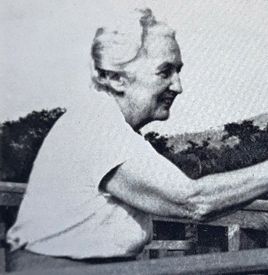
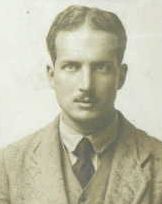
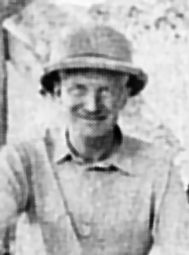
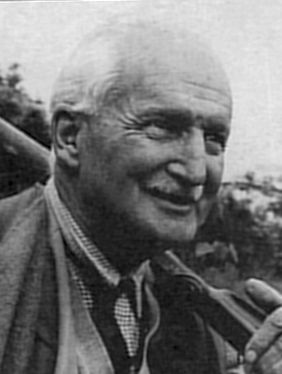
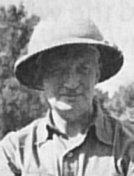
Nee: eldest son of Rev George Sherbrooke Walker
Birth Date: 4 July 1887 Edgbaston, England
Death Date: 13 May 1976 Mallorca
First Date: 1926
Profession: Hotelier - Outspan Hotel, Nyeri and Treetops. Retired bootlegger. Opened the Outspan on 1st January 1928
Area: 'Carissa', Naro Moru, Outspan Hotel, Nyeri
Married: In Kensington 26 July 1926 Lady Elizabeth Mary 'Bettie' Feilding b. 22 Aug 1899 Lutterworth, d. 1982 Estcourt, KwaZulu-Natal (dau. of the 9th Earl of Denbigh and sister of Lady Victoria Fletcher)
Children: Honor Sherbrooke (Hurly) (21 Mar 1929 Nyeri-3 Dec 2016 Auckland, New Zealand); Susan Mary (Hodgson) (27 Sep 1931 Nyeri-22 July 2015 Howick, S. Africa)
Author: 'Confessions of a Rum Runner', 'Treetops Hotel', 1962; Nicholas Best 'The Man from Treetops'
Book Reference: Best, Midday Sun, Who's Who, Sundown, Sahib, Debrett, John Carnegie, Red 31, Hut, Sheardown, Campling, Chandler, Fox Davies
War Service: WW1 with RFC 1914-19, in S. Russia 1919-20; Served in Abyssinia and W. Desert 1940-42
School: Privately and Queen's College, Oxford
General Information:
Best - He had started out by reading Theology at Oxford with the intention of becoming a parson, an idea he gladly gave up when it dawned on him that he was too much of a sinner to make a go of it. Instead he joined the Scout movement and became private secretary to Lord Baden-Powell, a post he held for 6 years until the outbreak of WW1 gave him the chance to enlist in the Royal Flying Corps and drop bombs on the squareheads. But he still kept up his friendship with Baden-Powell. After Walker had been shot down and captured by the enemy, the Scout leader corresponded with him in code and sent him a pair of wire cutters disguised as a ham bone. Once that particular war was over, Walker joined the British Military mission fighting with the White Russian army against the Reds, an expedition that kept him fully occupied until 1921.
Back in London next year, with only £400 of army back pay in his pocket and no qualifications of any sort, he fell deeply in love with the 6th daughter of the Earl of Denbigh and asked her to marry him. ........... became bootlegger anchoring a boat full of Scotch whisky just outside US territorial waters flying a Union Jack and selling booze to smugglers. ...... wrote a book 'Confessions of a Rum Runner' ...…
After marrying Betty they settled down in Kenya in 1926. They borrowed some cash, they bought 70 acres, built the Outspan and opened for business on New Year's Day 1928. Once prices had improved they diversified into agriculture, takling up land at Naro Moru and living in an elegant farmhouse, well known for trout and strawberries, that subsequently served as headquarters for the film crew of the movie Born Free. But far and away Walker's most inspired achievement, after he had been at Nyeri a little while, was his decision to build his wife a house in a tree. The idea owed something to Peter Pan and something to the Swiss Family Robinson. It also owed quite a lot to Lady Bettie who had passed much of her childhood in a treehouse looking at naughty postcards out of reach of the Earl of Denbigh! .......... (more)
Midday Sun - Letter from John Carnegie, June 1966 - Sherbrooke Walker was a very fine man who in his youth had hair-raising adventures in the USA in the early days of boot-legging before it turned nasty. He turned his back on it and came to Kenya but at some period became Baden-Powell's private secretary. .... He bought a farm near Nyeri and planted coffee but couldn't make it pay because of a slump in coffee prices and also a series of droughts. Also wild animals kept interfering. He started the White Rhino Hotel [incorrect] and later the Outspan Hotel and Treetops. He was a very good businessman and survived all the depressions by being enterprising and frugal and very hard-working. His wife Betty was very charming and clever and her sister Victoria married a Tasmanian called Miles Fletcher ......…
The Sherbrooke Walkers set a very fine example to all the farmers round about in the way that they dealt with their African staff and built up over the years a large force of dedicated and responsible people. We all loved them. When my brother crashed in 1954 and died in Nyeri Hospital the Sherbrooke Walkers gave my mother and myself the best room in the Outspan and Eric S-W himself came in dressing gown and pyjamas to tell me that my brother had just died in hospital. When they thought of retiring in a few years they started to build a super house near Naro Moru - not too big and grand but not small and poky. They called it Carissa after the Latin name of the bushes in the area which produced sweet-smelling flowers and berries that made delicious jam. They farmed Channel Island cattle there and made cheese and had a water wheel in the river to generate electricity. An American banker bought it later.
Sheardown - He was a person of more than just a little interest. The son of a Cambridgeshire clergyman, he had distinguished himself in the 1914-18 war, during the course of which he had served in the Royal Flying Corps. Having been shot down by the Germans, he had been taken prisoner but had managed to escape on no less than three occasions. Unfortunately, each time that he managed to get out and on the loose, he was unlucky enough to be recaptured. By the time that he was getting really good at this sort of thing and he was looking forward to really making it on the fourth attempt, his sterling efforts were terminated by the War coming to an end. This must have been a bit of an anticlimax for one of his mettle, but at the same time it must have been nice to be repatriated and, fairly soon after that, demobilised. Not being one to hang around when there was any prospect of getting into something interesting and, above all, stimulating, he next joined forces with the White Russians and saw action against the Bolsheviks.
As is recorded as a matter of history, this effort, gallant as it was, received little support and did not last long, so that Eric found himself back in England once more. Not much fancying the usual sort of non-jobs which were being meted out to ex-officers of the RFC, if indeed there were any jobs at all, he emigrated to the United States of America. He quickly summed up the situation there and, since Prohibition was just coming into force, spotted the odd opportunity afforded by this piece of well-meaning, do-gooding legislation. This opening was in the field of rum running in which he took an active part, ferrying the booze from Windsor in Canada to Detroit in the States.
The end of Prohibition found him quite comfortably off but America in the post-Prohibition era did not appeal to him much, and so he departed for other shores, meanwhile cashing in on his experiences by writing a most interesting book entitled "The Confessions of a Rum Runner" which was published under the nom-de-plume of 'Barbican'. ……. [more]
Campling - The Sherbrooke-Walkers stayed on at the Outspan which they ran with growing success until they sold it, together with Treetops in 1961 to Sir Malin Sorsbie …… Sorsbie sold the Outspan to Block Hotels in 1966 but meanwhile the Sherbrooke-Walkers retired to a farm at Naro Moru; later they left Kenya to live in Mallorca, where Eric died in 1976 at the age of 85. Lady Bettie died six years later at the age of 84, shortly before the 50th anniversary of Treetops.
mini-SITREP XLVI: Eric Sherbrooke Walker survived the war and had a remarkable life. The son of Reverend George Sherbrooke Walker and his wife, Jessie Elizabeth Carter, Eric was born in Edgbaston on July 4, 1887. He went to King Edward’s School and then Oxford University. He was a personal secretary to Baden Powell, the founder of the Scouting movement, and was one of the first two Scout inspectors, overseeing all of Wales and the south of England. 29 He joined the Royal Flying Corps during the First World War but was shot down and held as a POW in Germany. He is said to have made 36 attempts to escape. Apparently, on one occasion, a German girlfriend from before the war helped him to escape by supplying him with wire cutters (provided by Baden-Powell) hidden inside a piece of ham. After the war ended he was employed as a temporary Captain fighting against the Bolsheviks with the British Military Mission in south Russia alongside the White Army in the Russian Civil War. He was awarded the Military Cross for his gallantry. Eric Sherbrooke Walker returned to England after the war and married Lady Elizabeth Mary “Bettie” Fielding, the daughter of the 9th Earl of Denbeigh, on July 26, 1926. Needing money to finance his marriage, he ran a bootlegging business, smuggling liquor into America during the Prohibition era, while Lady Bettie worked as social secretary in the British Embassy in Washington. When Walker shot and wounded a corrupt state trooper who had tried to steal his cache of whisky, the couple fled to Canada. He later wrote ‘The Confessions of a Rum-Runner’ under the pseudonym of James Barbican about his life during that time. The couple finally emigrated to Kenya, where Walker bought 70 acres of land and opened the Outspan Hotel. In 1932, he opened the Treetops Hotel as a night-viewing station for wildlife. These business ventures may well have been financed by his bootlegging days in America. He was host to Princess Elizabeth and her husband, the Duke of Edinburgh, during their February 1952 visit to Kenya. The couple had accepted an invitation to spend a night at Treetops and arrived there on the afternoon of February 5, 1952. During the night, unknowingly, the Princess succeeded to the throne of England. Her father, King George VI, died in his sleep at Sandringham in England in the early hours of February 6, and the Princess received the news later that day. Walker’s business prospered, encouraged by public interest in the accession of Elizabeth II. His hotel business was even featured in National Geographic Magazine and celebrities, including Charlie Chaplin and Paul McCartney, visited the hotel. Walker also wrote a book about his life in Kenya and Treetops, named ‘Treetops Hotel’. His former employer, Lord Baden-Powell, retired to the Outspan Hotel and bought a share of Walker’s hotel business to pay for his cottage in the hotel grounds - named Paxtu - and now home to a Scouting museum. BP died there in 1941. 30 A house on Walker’s farm was used during the shooting of the film version of ‘Born Free’. An avid hunter during his younger days, Walker, like many others, became an advocate of wildlife conservation in his final years in Kenya. He retired to live in Majorca, Spain, and died there at his home, Cás Fidavé, on May 13, 1976.
Back to search results





